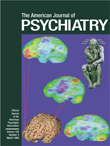Dr. Tucker Replies
To the Editor: After many years of marriage, my wife has taught me that anything short of total adulation is rejection. It seems the nosology gods adhere to the same principle. I think we agree that DSM-IV is being misused. Where we disagree is in saying that to fix things all we need to do is adhere to the principles outlined in DSM-IV, then we will all be on the path to truth and happiness. DSM-IV is a major advance, but it is now time to put it into perspective and see it as a part of the diagnostic process. We need to figure out a way to put the patient back into the process without losing the importance of labeling disorders. I am not sure how to do this, but I think we need to try, rather than engage in arguments ad hominem. When I was in training, the emphasis was all on the individual, and now it is all on the disorder. Neither extreme is the answer. We keep missing Jaspers’ admonition, “Psychopathology is concerned with the ill person as a whole.…[W]e must, therefore, as scientists, keep an open mind for all the empirical possibilities and guard against the temptation to reduce human experience to one common denominator” (1, p. 6). I do not think DSM-IV solves all our problems. We are missing something; and we need to work together to see if we can now add the missing parts. Perhaps we can’t; we haven’t been able to do it in the 85 years since Jaspers wrote the above, but we ought to try.
1. Jaspers K: General Psychopathology. Chicago, University of Chicago Press, 1963Google Scholar



